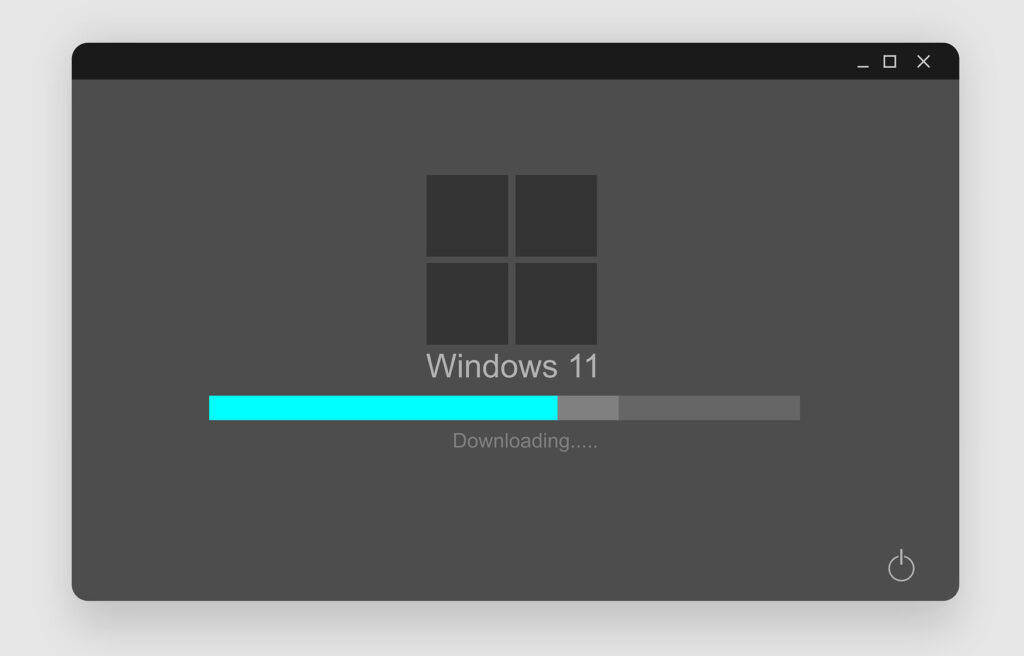Microsoft is launching its newest version of Windows. The updated operating system won’t be available all at once, however. Instead, Windows 11 will start replacing Windows 10 in a phased rollout that will extend into mid-2022.
What’s new with Windows 11?
It’s been six years since Microsoft released Windows 10 — a relatively long time between operating system upgrades. Windows 11 features an overhauled user experience, including refreshed colors and icons, major changes to the start menu and taskbar, an extensive reworking of the settings app, and a widgets pane optimized to display news and reminders.
With cybersecurity challenges growing every day, Microsoft has also beefed up the back-end architecture of Windows 11. Hardware-assisted security, formerly an optional setting, now comes as a mandatory setting, making Secure Boot and device encryption available by default to protect against increasingly sophisticated online attacks.

Can I upgrade to Windows 11?
Early indications are that Windows 11 will not install seamlessly as an upgrade on older PCs. What qualifies as “older?” Intel 7th Generation Core processors, for example, are not on Microsoft’s list of compatible CPUs, nor are PCs built using AMD Zen 1 processors. If your PC was manufactured and purchased before 2016, chances are it will almost certainly be unsupported. Owners of these older PCs may still be able to install Windows 11, but Microsoft cautions that these will most likely not be supported by regular security updates.
The initial answer to the question depends on the type of hardware you have. Unlike Windows 10, which could run well on older PCs, Windows 11 requires enhanced system settings found on almost all PCs manufactured and purchased in or after 2019.
The stated system requirements for Windows 11 are:
- Processor: 1 GHz or faster with two or more cores on a compatible 64-bit processor or system on a chip (SoC)
- RAM: at least 4 GB
- Storage: at least 64 GB of available storage
- Security: TPM version 2.0, UEFI firmware, Secure Boot capable
- Graphics card: Compatible with DirectX 12 or later, with a WDDM 2.0 driver
- Display: High definition (720p) display, 9″ or greater monitor, 8 bits per color channel
Should I upgrade to Windows 11?
If your computers already have Windows 10 installed, Windows 11 will be available for free. But Microsoft’s strategy in 2021 follows the template used several years ago for the leap from Windows 7 to Windows 10 when free upgrades were only offered for a limited time.
Because it is currently free doesn’t mean you should rush into an upgrade, however. Families and businesses have computers of varying ages, divergent day-to-day demands, and future forecasts that might require faster or slower rollouts. CMIT Solutions recommends the following tips to guide your decision on upgrading to Windows 11:
We recommend waiting at least three to six months before upgrading. As with any new, complex operating system, Windows 11 will inevitably contain some bugs that could lead to glitches, crashes, and other incompatibilities. That’s the key driver behind Microsoft’s elongated rollout plan for the new operating system, which started on Oct. 5, but extends into mid-2022.
Weigh the benefits of the big productivity boosts expected in Windows 11. Many Windows experts are excited to see how new features like taskbar widgets, virtual desktop toggling, onscreen sketching, and snapping gestures will impact day-to-day work. A newly integrated Microsoft Teams button with call, chat, text, and video capabilities will strengthen alignment with the popular collaboration tool. Additionally, upgraded Snap Layouts should assist with multitasking by allowing users to organize apps and windows for easier access.
Do your homework or work with an IT support company to check protections and compatibilities. If you have a trusted partner helping with cybersecurity or IT, talk to them about Windows 11. Past operating system upgrades have caused third-party applications to stop working and many software applications won’t immediately integrate with Windows 11. Most software providers will wait a few months as security vulnerabilities and bugs are worked out.

What else do I need to know?
As I’ve written about before, hackers love to capitalize on news events like this one by sending out illicit emails claiming to come from Microsoft, other software providers, and even IT departments. Be on the lookout for email related to the new operating system. Many of these emails will include a general message stating that the receiver needs to download and install Windows 11 using a provided URL that actually leads to a malicious site or installs malware on a system.
Use caution with any email purporting to be from Microsoft or claiming to contain a free upgrade to Windows 11. Microsoft’s licensing verification process will ensure that the actual download and installation for legitimate versions of Windows 11 will be secure.
If you’re still using Windows 7, Windows 8, or Windows 8.1, consider using this opportunity to upgrade to Windows 10. General and extended support for these older operating systems expired months and even years ago, making it critical that you consider an upgrade to Windows 10 now to protect your systems and your data.
Windows 11 could be a strong contender to become Microsoft’s next big operating system. But CMIT Solutions of SE Wisconsin always advises its clients to proceed with caution when considering an upgrade. Our nationwide network of IT and security experts are carefully researching the pros and cons of Windows 11. They are prepared to help clients navigate the decision-making process and perform the upgrade if they decide to move forward with it.
Not sure about the upgrade path for your computers? Have questions about system requirements or Microsoft licenses? Need to make a plan for keeping up with technology improvements and security requirements? CMIT Solutions of SE Wisconsin is here to help with careful consideration, trusted advice, and comprehensive support that’s always available to you. Contact us today.











